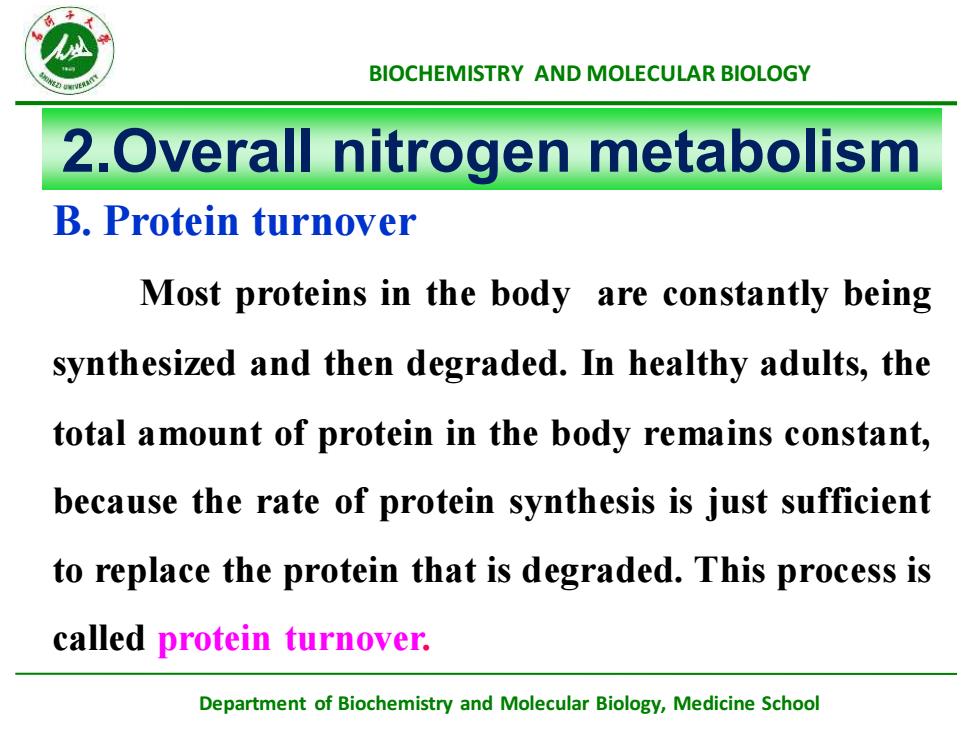
出BIOCHEMISTRYANDMOLECULARBIOLOGY2.Overall nitrogen metabolismB.Protein turnoverMost proteins in the body are constantly beingSynthesized and then degraded. In healthy adults, thetotal amount of protein in the body remains constant.because the rate of protein synthesis is just sufficientto replace the protein that is degraded. This process iscalled protein turnover.Department of Biochemistry and Molecular Biology,MedicineSchool
Department of Biochemistry and Molecular Biology, Medicine School BIOCHEMISTRY AND MOLECULAR BIOLOGY 2.Overall nitrogen metabolism B. Protein turnover Most proteins in the body are constantly being synthesized and then degraded. In healthy adults, the total amount of protein in the body remains constant, because the rate of protein synthesis is just sufficient to replace the protein that is degraded. This process is called protein turnover
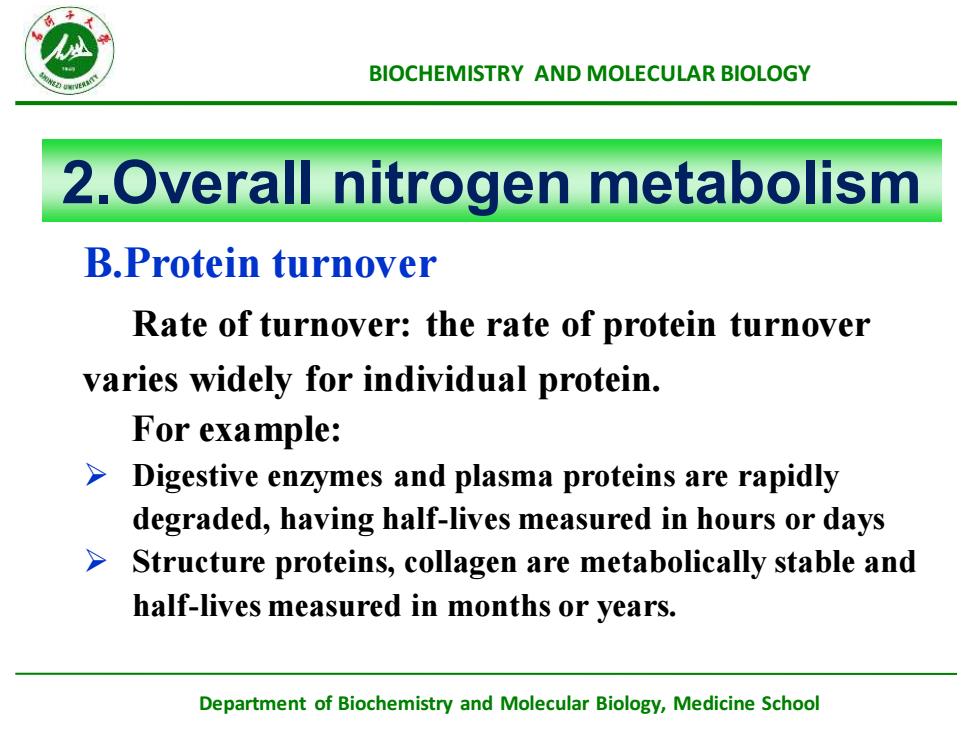
BIOCHEMISTRYANDMOLECULARBIOLOGY2.Overall nitrogen metabolismB.Protein turnoverRate of turnover: the rate of protein turnovervaries widely for individual protein.Forexample:Digestive enzymes and plasma proteins are rapidlydegraded, having half-lives measured in hours or daysStructure proteins, collagen are metabolically stable andhalf-lives measured in months or years.Department ofBiochemistry and Molecular Biology,MedicineSchool
Department of Biochemistry and Molecular Biology, Medicine School BIOCHEMISTRY AND MOLECULAR BIOLOGY 2.Overall nitrogen metabolism B.Protein turnover Rate of turnover: the rate of protein turnover varies widely for individual protein. For example: ➢ Digestive enzymes and plasma proteins are rapidly degraded, having half-lives measured in hours or days ➢ Structure proteins, collagen are metabolically stable and half-lives measured in months or years
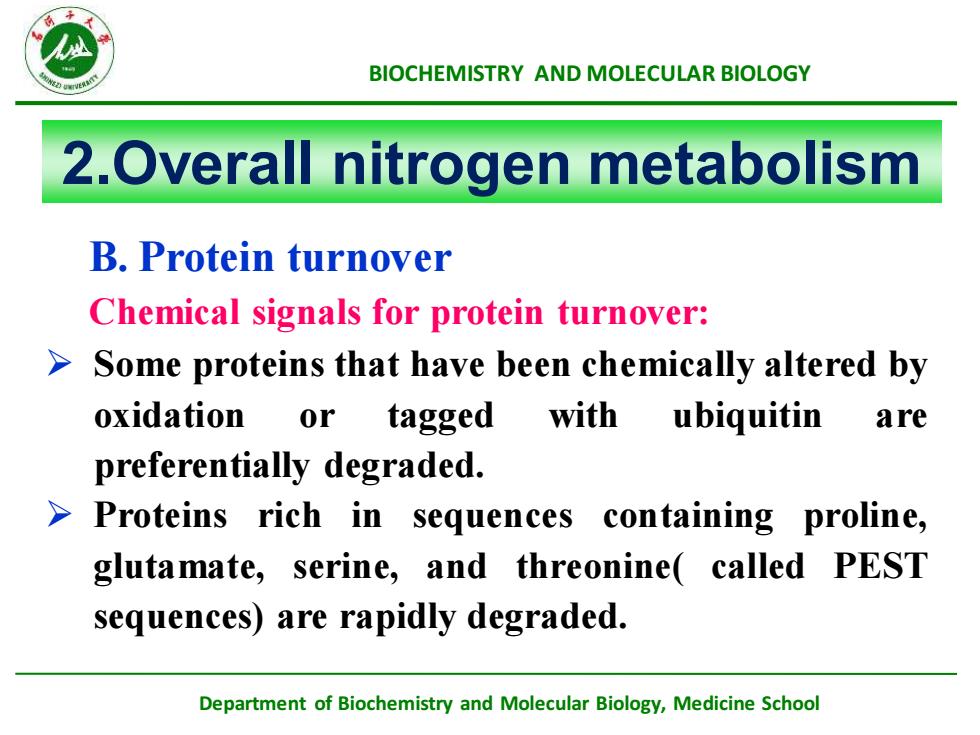
BIOCHEMISTRYANDMOLECULARBIOLOGY2.Overall nitrogen metabolismB.Protein turnoverChemical signals for protein turnover:Some proteins that have been chemically altered bywithoxidationor taggedubiquitinarepreferentially degraded.> Proteins rich in sequences containing proline,glutamate, serine, and threonine( called PESTsequences) are rapidly degraded.Department of Biochemistry and Molecular Biology,MedicineSchool
Department of Biochemistry and Molecular Biology, Medicine School BIOCHEMISTRY AND MOLECULAR BIOLOGY 2.Overall nitrogen metabolism B. Protein turnover Chemical signals for protein turnover: ➢ Some proteins that have been chemically altered by oxidation or tagged with ubiquitin are preferentially degraded. ➢ Proteins rich in sequences containing proline, glutamate, serine, and threonine( called PEST sequences) are rapidly degraded
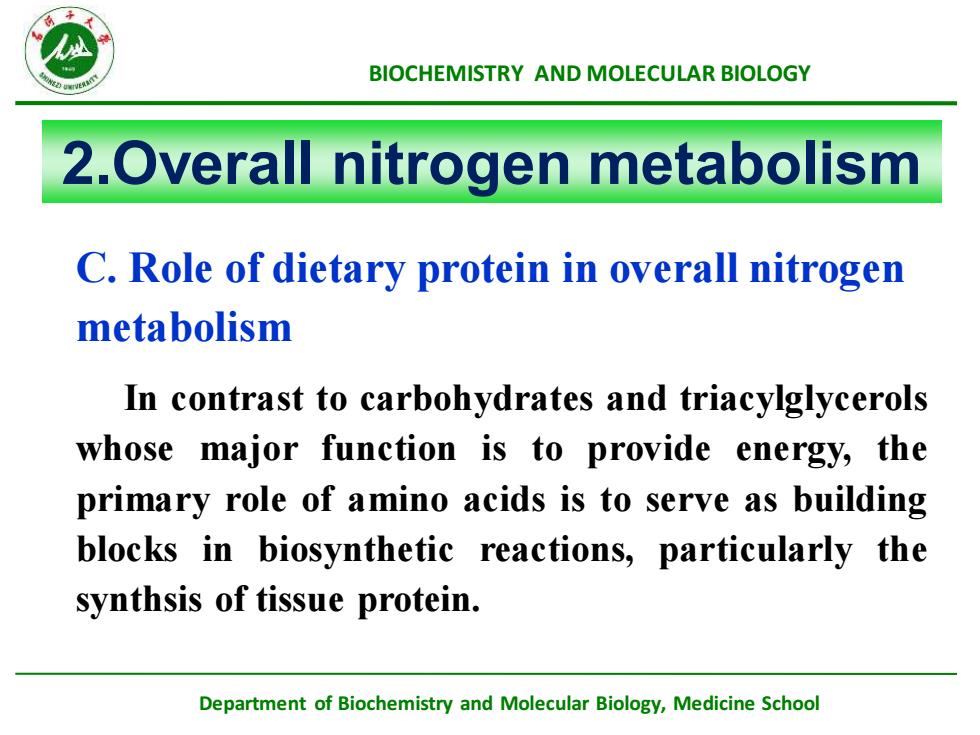
BIOCHEMISTRYANDMOLECULARBIOLOGY2.Overall nitrogen metabolismC.Role of dietary protein in overall nitrogenmetabolismIn contrast to carbohydrates and triacylglycerolswhose major function is to provide energy, theprimary role of amino acids is to serve as buildingblocks in biosynthetic reactions, particularly thesynthsis of tissue protein.Department of Biochemistry and Molecular Biology,MedicineSchool
Department of Biochemistry and Molecular Biology, Medicine School BIOCHEMISTRY AND MOLECULAR BIOLOGY 2.Overall nitrogen metabolism C. Role of dietary protein in overall nitrogen metabolism In contrast to carbohydrates and triacylglycerols whose major function is to provide energy, the primary role of amino acids is to serve as building blocks in biosynthetic reactions, particularly the synthsis of tissue protein
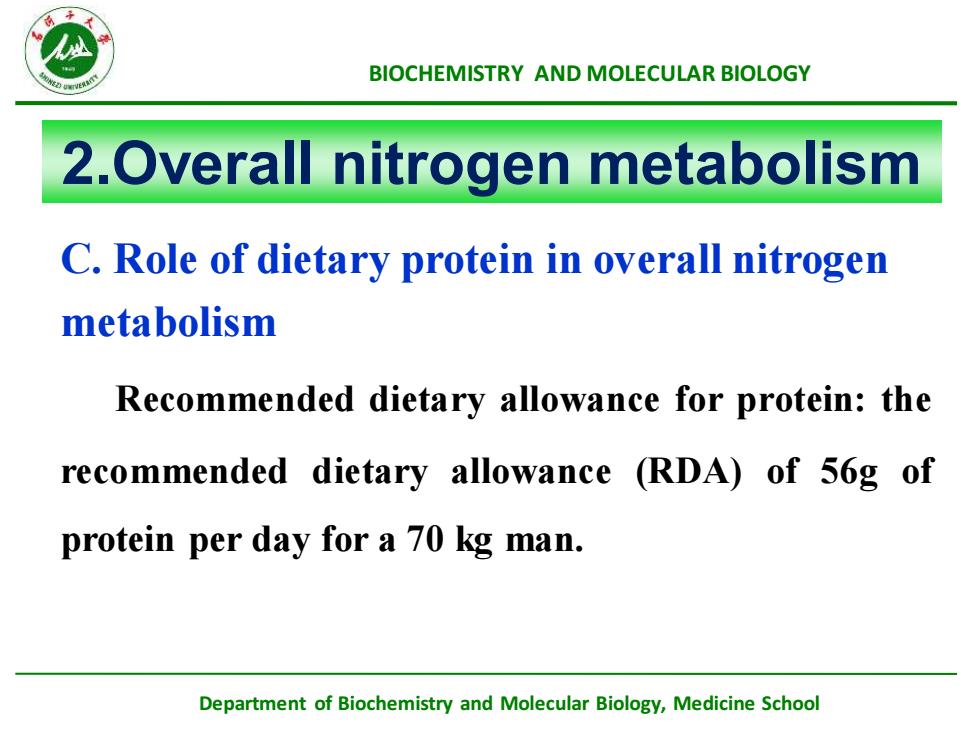
BIOCHEMISTRYANDMOLECULARBIOLOGY2.Overall nitrogen metabolismC.Role of dietary protein in overall nitrogenmetabolismRecommended dietary allowance for protein: therecommended dietary allowance (RDA) of 56g ofprotein per day for a 70 kg man.Department ofBiochemistry and Molecular Biology,MedicineSchool
Department of Biochemistry and Molecular Biology, Medicine School BIOCHEMISTRY AND MOLECULAR BIOLOGY 2.Overall nitrogen metabolism C. Role of dietary protein in overall nitrogen metabolism Recommended dietary allowance for protein: the recommended dietary allowance (RDA) of 56g of protein per day for a 70 kg man